Iran's executes at least 300 in first half of 2024 with 49 in July alone
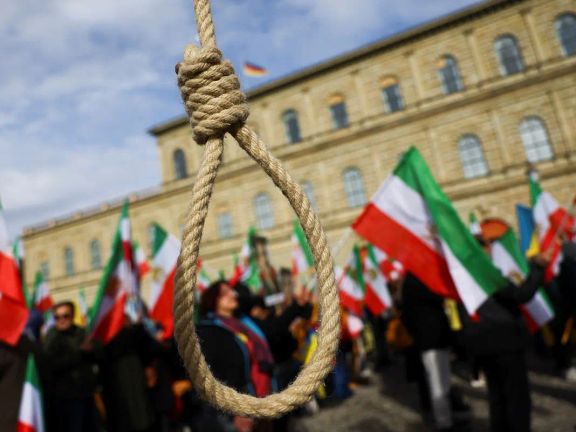
At least 300 people were executed in Iran in the first seven months of 2024 following a record number of killings in 2023.

At least 300 people were executed in Iran in the first seven months of 2024 following a record number of killings in 2023.
A significant increase in executions was noted in July, with 49 people executed, according to a new report by Norway-based Iran Human Rights Organization (IHRNGO) on Saturday.
Thirty-six people were executed in just the last 11 days of the month.
The surge follows a period of relative decline after the death of President Raisi and the presidential elections from May 19 to July 5.
The organization's 15-year statistical analysis shows a consistent decline in executions in the weeks leading up to elections, believed to be a tactic to boost voter turnout.
Mahmood Amiry-Moghaddam, the director of IHRNGO, expressed grave concern over a new wave of executions targeting activists from Iran’s ethnic minority communities and prisoners sentenced to death on drug-related offenses.
"We are particularly worried about the new wave of executions of Kurdish civil activists and drug death row prisoners in the coming weeks and months," Amiry-Moghaddam said.
Five of the 300 executed this year were accused of spying for Israel, and five were Kurdish-Sunni political prisoners.
Of those executed on espionage charges this year with links to Israel as alleged by Iran’s judiciary this year included Pejman Fatehi, Mohsen Mazloum, Mohammad (Hazhir) Faramarzi and Wafa Azarbar, who were executed in Ghezel Hesar Prison in Karaj, west of Tehran in January.
Their execution caused widespread global condemnation with rights groups arguing their execution was based on confessions obtained under torture and without a fair trial.
Out of the total executions in Iran so far this year, 20.67 percent were from ethnic minorities, with 14 percent being Baluch (42 individuals) and 6.67 percent Kurdish (20 individuals). Additionally, 6.67 percent of the executed were Afghan nationals (20 individuals).
The report highlights that 172 of these executions were for drug-related offenses. At least 15 women were executed with ten hanged for drug-related offences.
Executions for drug-related charges have risen annually since 2021, though there was a 20 percent decrease in the first seven months of 2024 compared to the same period last year.
According to Amnesty International, Iran carried out 853 executions in 2023, marking the highest number in eight years. Amnesty International noted that 64 percent of the executions in 2023 were for crimes that did not warrant the death penalty under international law, including drug-related offences, robbery, and espionage.
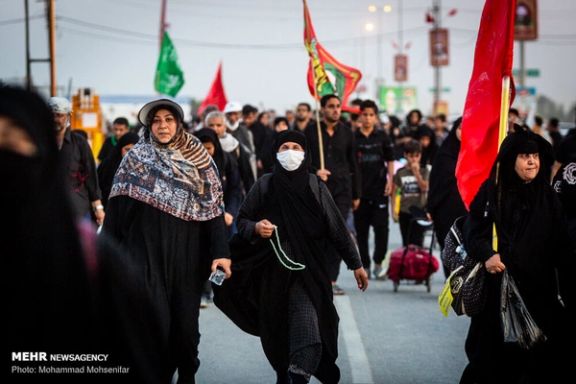
The government of President Masoud Pezeshkian is under fire for continuing to allocate huge sums to support the ‘Arbaeen Walk’ to Iraqi holy cities and offering perks to the annual event's participants.
The Arbaeen ceremony, marking the end of the 40-day mourning period following Ashura—the religious ritual commemorating the third Shia Imam, Hussain ibn Ali, grandson of Prophet Muhammad, who was killed in 680 AD—is one of the world's largest annual gatherings. Iranian officials say that around four million people travel to Iraq for the event.
Criticism was sparked by the announcement that the newly appointed Vice-President Mohammadreza Aref had ordered 4 trillion rials (around $650,000) to support the event which culminates with ceremonies in the Iraqi cities of Karbala and Najaf on August 25 this year.
The money will be spent to "prevent unforeseen incidents, contagious diseases, and heat strokes at border points and along the pilgrimage path.”
“Why? Arbaeen was not this government’s promised concern. Leave Arbaeen to the people,” Mohammad-Taghi Fazel-Meybodi, a reformist cleric, posted on X, arguing that the “justice” promised by Pezeshkian and his government would be allocating the budget for the education of children in Sistan and Baluchestan province where many children are deprived of an education.
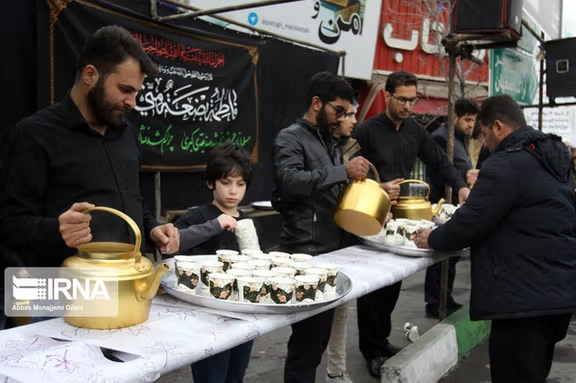
In a tweet Sunday, Iranian journalist Fateme Karimkhan contended that the negative reactions to the expenditure were unfounded. “More than four million Iranians will participate in the Arbaeen Walk and the government would have been responsible to make plans for their protection even if they were to take a domestic route,” she argued.
Most Iranian pilgrims travel to the border, where free parking facilities are provided, and take the walk to the cities of Najaf and Karbala from there while some others fly directly to these cities.
The Islamic Republic has made extensive plans and allocated huge sums in the past decade to encourage and fund the annual event as a show of Shia political power and influence.
Hossein Tayebifar, Acting Representative of Supreme Ali Khamenei in the Revolutionary Guards (IRGC), said on July 28 that the event was “the biggest deterrent operation in the world against the conspiracies of the enemies of Islam.” Some officials and clerics say the Arbaeen gathering is one of the manifestations of the Shia “soft power’.
The cost to the public includes massive budgets for infrastructure works such as building and maintenance of roads and service stations as well as provision food, water and field and mobile hospitals along the main routes and in Iraq, and mobilization of the Revolutionary Guards (IRGC), the regular army and other bodies to provide the security of the event, and state propaganda.
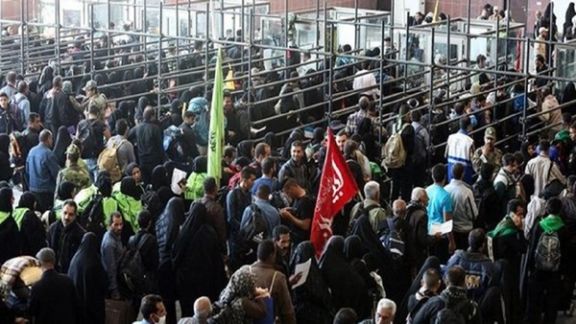
The government also allocates Iraqi currency at cheaper rates and no-interest loans to pilgrims to encourage more people to participate. As in the past few years, the government will sell 200,000 Iraqi dinars (around $120 at open market rates) to pilgrims at the discounted rate of 370 rials to the dinar against 450 rials in the open market.
Many government organizations, municipalities, and city councils separately allocate special budgets for the event. The City Council of Mashhad, for instance, approved a budget of 150 billion rials ($5 million) for services in the Iraqi holy city of Najaf in 2023 and dispatched over 500 city cleaners and 350 bus drivers there.
Other perks include ‘pilgrimage leave’ for civil servants and free internet and roaming mobile services during the event.
If four million or more participate in the event as predicted, the discount in foreign currency rates and the loans could cost the government hundreds of millions of dollars or more depending on the number of participants.
It was also revealed last week that the Ministry of Labor and Social Affairs had ordered various government agencies as well as the government retirement fund to contribute to the costs of holding the procession.
“I declare it here that I’m not happy with using the assets of the retirement fund, even as much of as one rial, for anything other than what the funds were established for,” a retired teacher posted on X. Others have pointed out that those who benefit from the perks of Arbaeen should be mindful that any money taken from the fund without their consent will be ‘haram’ - or religiously forbidden.
President Pezeshkian has also ordered all government bodies involved in the matter to abide by their commitments but has also suggested that his government wants to minimize its own role in holding the event.
“We can increase people’s participation [in supporting the event] and the government will withdraw as much as possible ... Where people cannot help, the government should assist and support them. There is no reason for the government to get involved and create more problems where people can help,” he said Saturday at a meeting of the ‘Arbaeen Taskforce’ formed a few years ago of which the vice president and several ministers are members.
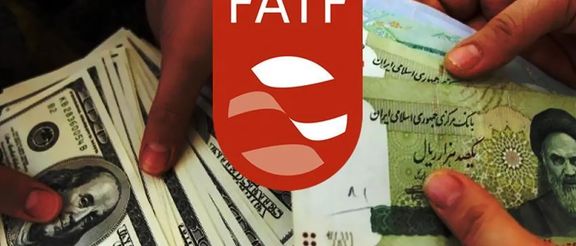
Despite discussions around Iran's potential accession to the Financial Action Task Force (FATF), the country must do more to attract foreign investment, the head of the country's chamber of commerce has said.
The Secretary-General of the Iranian Committee of the International Chamber of Commerce (ICC), Mohammad Khazaei, emphasized that Iran's performance in luring foreign investors has been lackluster, and the statistics on foreign investment currently publicized may not be accurate.
In recent years, Iran has been placed on the financial watchdog's 'blacklist' for failing to comply with transparency standards and international conventions aimed at preventing money laundering and the financing of terrorism.
In an interview with an ILNA, Khazaei highlighted that while the quality of financial transfers through banking networks, and issues such as FATF and SWIFT, are significant, they are not the only barriers to foreign investment in Iran.
He noted that Iranian traders often express frustration over difficulties in financial transactions or their inability to receive funds from international banks, forcing them to use exchange offices instead.
FATF identifies problematic and high risk countries in terms of financial dealings. It lists countries, “with serious strategic deficiencies to counter money laundering, terrorist financing, and financing of proliferation".
Khazaei explained, "However, issues like FATF, SWIFT, and banking transactions are just one aspect of foreign investment. In attracting foreign investors, various other factors must also be considered and addressed, such as the security of the political environment, judicial and legal security, guarantees provided by governments and investees to foreign investors, and ensuring the return of the principal investment and its profit."
The Financial Action Task Force (FATF) is an international organization established by the G7 member countries to safeguard the international financial system. Its recommendations influence banking policies in most countries and guide businesses aiming to protect their own integrity and reputations. Consequently, Iran's status on the FATF blacklist has had a significant negative impact on its international banking operations.
He pointed out that even if Iran resolves its issues with FATF, it does not guarantee a surge in foreign investments, as other critical obstacles remain. For instance, previous foreign investments in Iran's renewable energy sector have faced challenges. Khazaei recounted instances where the Central Bank of Iran failed to provide the necessary foreign currency to pay agreed profits to investors, or where the national electricity company, Tavanir, could not pay for purchased electricity, highlighting domestic inefficiencies as major deterrents to foreign investment.
The former head of the Investment and Technical and Economic Assistance Organization of Iran stressed the importance of fulfilling commitments to attract foreign investment. "Fulfilling commitments in attracting foreign investment is crucial, and in this regard, the government must implement the guarantees given to foreign investors. One guarantee is that the investor should be able to convert and transfer their profits out of the country," Khazaei stated.
He also emphasized the need for stable laws, political security, social security, and stable exchange rates to attract investment.
Mehdi Hosseini, an energy expert, echoed similar sentiments in another interview with ILNA, critiquing Iran's current diplomatic stance. He argued that Iran's focus should not be exclusively on either the West or the East but should instead maintain a balanced approach.
Iran, under the rule of Ali Khamenei, a staunch anti-West cleric, has strengthened its ties with Russia, providing drones and possibly other weapons for Moscow's war against Ukraine. Additionally, Iran has been attempting to expand economic relations with China; however, Beijing has approached these efforts cautiously due to American economic sanctions on Iran.
The Biden administration, along with European powers, has expressed deep concern over Iran's expanding military ties with Russia. They have stated that any resumption of nuclear talks with Tehran is contingent upon Iran altering its policy of supplying weapons to Moscow in its war on Ukraine.
Hosseini highlighted Russia's weak economy and expressed doubt if Iran can benefit anything by close economic ties with Moscow. He pointed out that despite Iran's attempts to engage with China, no significant investments have materialized, largely due to China's cautious stance given US sanctions on Iran.
Hosseini questioned the efficacy of Iran's current foreign policy, stating, "In all these long years with numerous resolutions passed against us at the UN, where have China and Russia been? Have they vetoed the resolutions?"
He suggested that Iran needs to reassess its policy and strive for a balanced relationship between East and West to effectively attract foreign investment and secure economic growth.
He said that focusing solely on the East, especially Russia and China, is "an unbalanced policy that makes us dependent on countries from which we gain nothing, even if they have positive intentions".
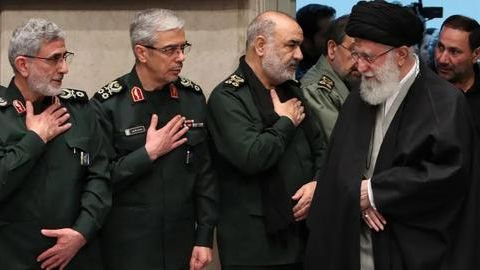
Some Tehran media and politicians continue to demand answers over security lapses that allowed the assassination of Hamas leader Ismail Haniyeh in a government guesthouse in Tehran last week.
While many Iranian officials and politicians call for a strong retaliation against Israel for Haniyeh’s brazen killing by an explosive projectile while he was sleeping, a few insiders insist that the priority should be to understand how such an operation was possible.
One of these voices is an influential commentator and former senior lawmaker Heshmatollah Falahatpisheh who spoke to Etemad newspaper.
"The most important scenario to consider regarding the assassination of Haniyeh is the scenario of infiltration. This issue needs to be carefully analyzed and evaluated. I hope that the scenarios being presented by some experts on state television and in certain radical media outlets are not being used as an excuse to avoid accountability," Falahatpisheh said.
He is one of a dozen or so commentators allowed to often speak out on government-controlled media about sensitive issues. He often voices opinions critical of some government policies, including its foreign policy.
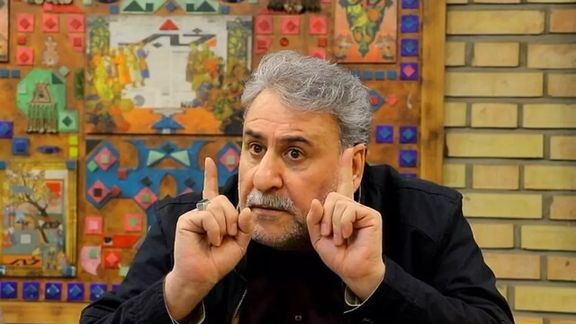
Iranian security and intelligence officials remained largely silent in the first three days after the assassination about the exact circumstances and what kind of weapon was used. This led to plenty of speculation both in the Iranian and foreign media. The New York Times went as far as claiming that a bomb placed in the guesthouse two month earlier killed Haniyeh, not any projectile fired from the air or the ground.
Finally, on Saturday, the Revolutionary Guard issued a statement rejecting this scenario and announcing that Haniyeh was killed by a small and short range projectile fired from the vicinity of the compound.
However, criticism of security and intelligence agencies continue. Javad Emam, a politician from the Reform Front in a tweet asked President Pezeshkian to act. "The assassination and martyrdom of Ismail Haniyeh on Iranian soil was a warning about the incompetence and inefficiency of certain parts of the country's intelligence and security apparatus."
Emam urged Pezeshkian to make personnel and other changes.
"First, take action to reorganize the intelligence and security forces, and if necessary, reselect them.
Second, where possible, and not in a rushed manner, work towards merging parallel intelligence agencies to prevent further costs to the country due to lack of coordination and the actions of inexperienced personnel.
Third, by establishing truth-finding committees and punishing those at fault, and following the example of several important national cases, work to restore a sense of security in society,” he argued.
Falahatpisheh, in turn, mocked statements by officials who periodically claim they have demolished enemy networks within the country. One such statement by the intelligence minister was made just days before the Haniyeh incident.
"A while ago, one of the officials openly stated that they had uncovered and neutralized all areas of Zionist infiltration in the country. However, incidents like the assassination of Martyr Haniyeh show that there are still specific security vulnerabilities that need to be addressed urgently. Addressing these gaps and deficiencies should be one of the key priorities for the new administration," the former lawmaker stated.
Despite these calls for a serious investigation and holding security officials responsible for the failure to protect a high-level foreign guest, so far there is no sign of action. What occupies most headlines in Iran is the issue of a retaliatory attack against Israel.
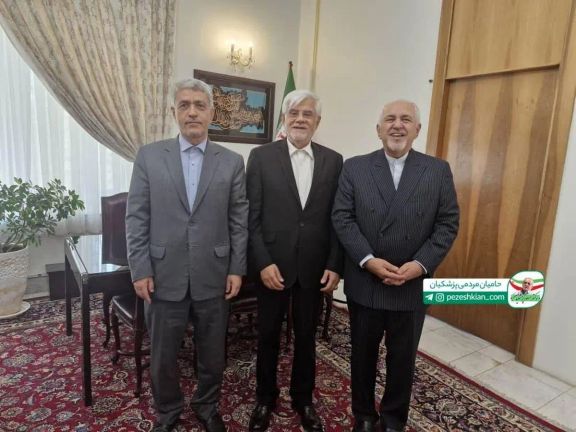
The appointments of Mohammad Reza Aref, Mohammad Javad Zarif, and Mohammad Jafar Ghaempanah, all in their 60s and 70s, to senior roles by President Masoud Pezeshkian have sparked debates about the age gap between Iran's leadership and its younger population.
Aref (74) was appointed as Iran's senior vice president, Zarif (64) as deputy for strategic affairs, and Ghaempanah, who is in his 60s, as vice president for executive affairs.
According to the latest figures available, Iranian between the ages of 20-39 comprise 31 million people, or more than one third of the population. Also, A 2020 study also showed that those between 25 to 40 years old comprised the largest part of the population.
Last week, when the first partial list of President Pezeshkian's proposed cabinet ministers was leaked to the press, critics noted that the average age of a majority of his potential cabinet ministers was higher than 62.
In a commentary on the Etemad Online website, pro-reform commentator Abbas Abdi wrote that the Iranian society is young and its male and female members are pluralist with a diversity of attitudes while those in top posts in the government are generally old males who share a single attitude on most issues.
In the commentary headlined "A young and diverse society and old and monolithic government," Abdi wrote that most Iranian managers are conservatives. However, he noted that hardline conservatives in the previous government were generally younger than officials in the governments formed before 2021.
He further noted that women have always had a very small share of government positions in Iran and men who did not subscribe to the official ideology were almost non-existent in the government.
Abdi recalled a debate about the lack of women university chancellors in Iran, despite women making up more than half of the students and 10 percent of the faculty. Someone argued that the issue wasn't simply gender discrimination. But Abdi questioned whether all the men in those positions truly deserved their roles based on merit. He concluded that we can only address gender discrimination if we can confidently say that all of those men earned their positions fairly.
Abdi, a member of Pezeshkian’s steering committee tasked with assessing politicians' qualifications for ministerial posts, added that more than 80 percent of candidates know in advance that they are not "qualified" for these roles due to restrictive criteria. Of the remaining 20 percent, half are uninterested in serving as cabinet ministers because they realize they won't be able to fully utilize their capabilities. This leaves only 10 percent of candidates, a number that shrinks to less than 5 percent when the names are submitted to parliament for a vote of confidence.
What Abdi did not say openly is the fact that regime insiders dominate government posts and ideological as well as political loyalty severely restrict the field of potential candidates.
"This is a catastrophic way of treating the country's human resources," Abdi said, noting that this approach has its most damaging impact on Iranian youth. Women and those who hold views different from the official ideology are also affected, effectively barred from meaningful participation in the country's affairs, and often driven to leave the country.
According to the pro-hardliners Hamshahri daily, the Raisi Administration was Iran's youngest government with an average age of 43 that was at least 10 years younger than its predecessor, the Rouhani Administration. However, the Raisi government was stacked with ambitious hardliners who mostly did not have qualifications for top government positions.
Zarif had promised to keep most cabinet ministers under 50, but the names circulating in unverified reports—such as Abdolnaser Hemmati (proposed Economy Minister), Es'haq Jahangiri (proposed Oil Minister), and Hossein Alai (proposed Industry Minister)—are all in their late 60s or mid-70s.
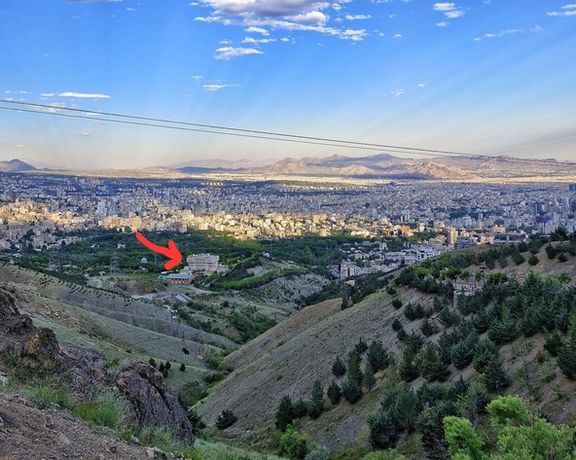
The assassination of Hamas leader Ismail Haniyeh at his Tehran residence last Wednesday exposed security failures in Iran. An eyewitness report detailed the chaos and distress experienced by mountaineers and residents in the Tochal mountain area north of Tehran during the attack.
While the Iranian Revolutionary Guard Corps (IRGC) initially reported the incident as involving a "projectile from the air," new information points to a more intricate situation. The incident has triggered widespread controversy and speculation regarding the true nature of the attack and the weaknesses in Iran's security systems.
Proreform Roydad24 website has uncovered details indicating that the Tochal mountainous area, overlooking Haniyeh’s residence, was heavily secured on the day of the incident. According to the report, "On the day of the incident, the Tochal was under security protection, and all security camera footage from Tochal’s stations was seized by security personnel."
Tochal is a mountain and ski resort situated in the Alborz mountain range, near the metropolitan area of Tehran in northern Iran. The area features a 12-kilometer (7.5-mile) ridge, with its highest peak, also named Tochal, reaching an elevation of 3,963 meters (13,002 feet) above sea level. The Tochal Complex includes a gondola lift that transports visitors from Tehran to the ski resort and hotel.
Hamid, who manages a business at Tochal Station 1, reported being awakened at 5 AM by his staff, who informed him that intelligence agents had arrived and requested the store's security footage. Upon arriving at Tochal, Hamid discovered that access to the area was restricted, and everyone present was detained and interrogated until 1 PM.
Residents of Tochal reported hearing a loud noise and a roar around 2 AM on Wednesday, though no visible explosion was detected from the Tochal stations. This aligns with the IRGC’s updated statement suggesting that the projectile was fired from outside the guesthouse area, likely from the Tochal mountains. However, the exact identity of the damaged building remains unconfirmed.
Fars News, an IRGC-affiliated media outlet, initially reported that the attack was executed using a "projectile from the air." This report sparked a series of theories, including missile launches from outside Iran, pre-positioned bombs, and even drone or aircraft attacks.
Khalil al-Hayya, a senior Hamas official, claimed at a Tehran press conference that the assassination involved a missile.
"A missile hit the room where Haniyeh was staying, breaking the glass before impact and causing the wall to collapse," al-Hayya stated.
The IRGC’s subsequent confirmation on Saturday matched Roydad24’s findings, noting that a short-range projectile witha 7-kilogram warhead was used, and the attack came from outside the guesthouse area.
Initial official statements placed Haniyeh’s residence in northern Tehran, near Saadabad. However, IRGC-affiliated sources later pinpointed it as being within a Thar-Allah Headquarters base in northern Tehran.
Reports on Telegram channels close to the IRGC claimed that Haniyeh was secretly housed at a facility in northern Tehran, with even the building caretaker and local police unaware of his true identity.
Following the incident, images of a partially damaged building were published, reportedly within an IRGC base in Saadabad. Maxar Technologies provided satellite images showing minor differences before and after the incident, reinforcing media speculation about the building’s location.
Although Fars News denied the reports, stating Haniyeh was hit in Zafaraniyeh, social media users also shared images of a building in Saadabad, visible from the Tochal mountains.
The simplicity of the missile launch scenario might seem too straightforward, but Israel’s past sabotage and assassination operations in Iran have often relied on similar methods.
Former Iranian Intelligence Minister Ali Younesi highlighted this issue in July 2021, warning that Mossad’s infiltration posed a serious threat to Iranian officials.